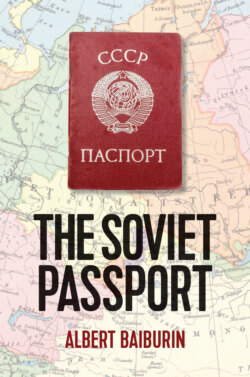Читать книгу The Soviet Passport - Albert Baiburin - Страница 20
5.
ОглавлениеAn important element in researching documents is the question of trust. This became a subject of study at the start of the twentieth century.24 A new twist in this study is the need to define the understanding of the term and where it exists (as has been described by Piotr Sztompka, Geoffrey Hosking and others).25 Its role in particular circumstances needs to be clarified, including cases with documents, which can probably be considered as instruments ‘for formalizing the practice of trust’ (in the words of Irina Kaspe). However, this does not always happen, at least in Soviet practice.
The category of trust is fundamental, and not only for legal issues. It is the basic foundation for relations between people, because man has to consider the way he behaves. In so-called traditional cultures, trust was upheld by various exchanges, by social status and by class honour. It was always strengthened by specially designed, artificial practices, such as word of honour, oath and agreement. But it was vital that these ‘supports’ upholding trust lasted the test of time; hence the written form is so important. The document becomes one of – and, with time, the most important – support for trust.
Written documentation arose almost as soon as writing appeared, but it became especially significant in the modern age. The characteristics of this period are well known: the rationalization of all areas of the life of society; greater mobility; economic growth; greater public activity; the spread of accounting and measuring practice; the dawn of statistics and the census; the list goes on, and all of this was accompanied by a greater emphasis on the person, a previously unknown acceptance of their individuality, not to say their uniqueness. But perhaps the changes taking place with the person themselves represented the most important characteristic of all: they were becoming an active subject.
With social activity growing, certain persistent problems needed to be solved, such as how to maintain trust in an ever-widening circle of contact with strangers. This new situation demanded new forms of responsibility – not only collective, but individual, too. It follows that the need for identification became more urgent, which was not possible without some form of documentation. What’s more, it became important somehow to define trust: what should be taken not simply in good faith but can be verified by something or someone. One of the reasons why documents became so widespread was the lack of trustworthy information in relations between elements in society.
The widespread use of documents demonstrates that, along with the practice of ‘horizontal’ trust, various forms of ‘vertical’ trust took hold, too. If the former operate between ordinary members of society, the latter should govern the relationship between a person and the institutions of the state as well as interactions with ‘others’. I deliberately wrote ‘should’. In Russian circumstances these types of constructions did not always work, as constantly noted in literary and other sources, and in particular when it came to documents. The passport became mainly the embodiment of a lack of trust towards the citizen. In his review of The Status of the Document (edited by Irina Kaspe), Dmitry Kalugin notes that in Russia the document,
… from the very beginning was a hostile force, standing against the citizen and the whole world, as an iron law of coercion and an instrument of social training, having its own logic, unfamiliar to the person to whom it is supposed to relate. This determines the status of the document, not only in a bureaucratic sense but, in actual fact, existentially, setting the basic parameters both for life itself and for the way in which it is represented.26
One might assume that trust was incompatible with the Soviet policy of coercion; but, as recent research has shown, this was not in fact the case. In Stalin’s and Brezhnev’s times, various types of trust did exist, based on both personal relations (through such phenomena as personal contact and blat27) and accepted rules in the demimonde (for example, in criminal circles). Even in the power structures relations could develop based on trust, supported by institutional practices, kompromat, and so on.28 The passport and similar documents which many people viewed suspiciously because they came from the authorities, nevertheless provided an essential level of trust in contacts between the citizen and officialdom, and sometimes even in informal contacts.
